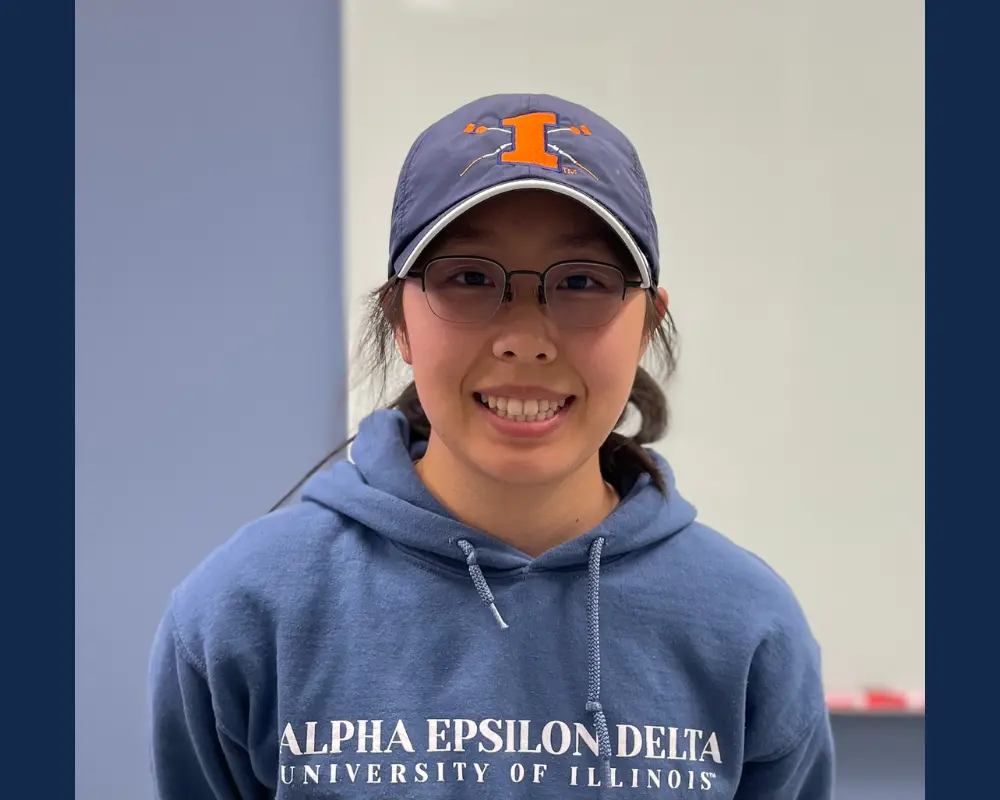
This summer we're profiling recipients of summer undergraduate research fellowships to learn about their academic interests and glance into their daily lives as undergraduate researchers.
Today we're speaking with MCB senior Alisha Xiong, a member of the Thomas Gaj bioengineering lab and a 2024 recipient of the School of MCB Summer Undergraduate Research Fellowship, sponsored in part by Dr. Keith Westcott.
Why did you decide to apply for a fellowship?
Research has been a really big part of my life this past year, and there were so many exciting things happening that I didn’t want to stop for the summer. It’s fun to be part of the scientific process and see the fruits of your labor. My favorite thing about research and biology in general is the novelty; there is so much left to be explored.
How did you get involved in Dr. Gaj’s lab?
I’ve had an interest in CRISPR technology since middle school, and that’s what drew me to my lab — seeing it used in different settings. I struggled to find a lab opening my freshman and sophomore year, but I ended up with Dr. Gaj through a combination of luck and persistence.
Tell us about your research interests and what you’re working on this summer.
Our lab uses CRISPR to create corrective gene therapies for neurodegenerative disorders like ALS, Alzheimer’s and Huntington’s disease. My project uses an optimized CRISPR-Cas system to create a double stranded break within the Huntington gene, resulting in its permanent inactivation. To facilitate the delivery of our engineered system into cells, we package them into adeno-associated viral vectors and inject them into the striatum of transgenic mice. Then we do a lot of behavioral and molecular assessments to determine the therapeutic effect of the gene edits.
What does an average day look like for you?
Things differ day by day, but I’ll usually come in early and run experiments like transfecting mammalian cells or continuing a Western blot. Afternoons are usually for behavioral studies, so we’ll weigh the mice and quantify locomotive function through rotarod and open field tests. My day usually ends around 7 or 8 p.m with data analysis and planning for the next day.
What do you hope to gain from this experience?
I’d like to keep developing my research skills and working more independently. This project has a broad scope, which allows me to learn many different techniques. I get to interact with plasmids, play with mammalian cell cultures, and do animal work. It’s all the most fun parts of biology combined into one experience. I always look forward to learning about new things and getting to apply what I’ve learned in class and in the literature.
What are your career or academic goals?
I’m interested in the medical field, and I’d like to go to graduate school. I’ll be taking a gap year first to explore my career options and gain more clinical experiences.
Do you have any advice for other undergraduates who would like to get involved in research?
If you have an interest, pursue it. What I love about [MCB] is the duality of broadness and specificity of research topics. There are so many labs to choose from, and you can narrow it down based on your specific interests. PIs aren’t scary; they’re people too, and they love when students reach out about their research. Talk to them even if they don’t have current availability in their lab, but maybe one day there’ll be an opening.
How do you like to spend your free time?
I’m on the women’s rowing team, so I usually get up at 5 a.m. and row for about an hour. I also like solving jigsaw puzzles and socializing with people.